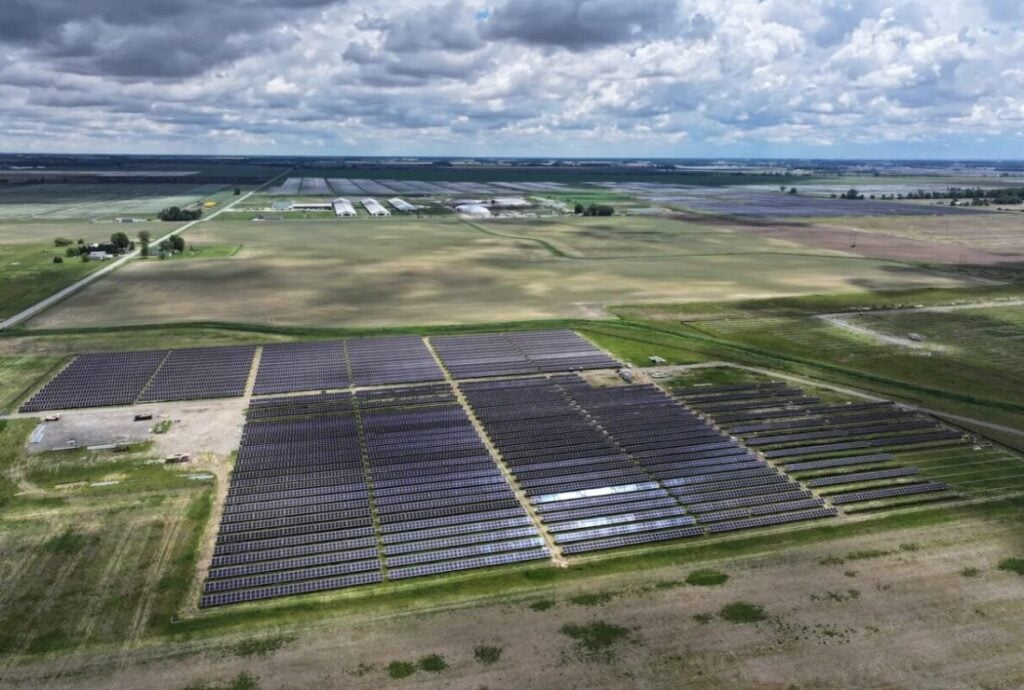
US renewable power developer Invenergy has commissioned the 250MW Hardin III Solar Energy Center in the US state of Ohio.
Electricity generated at the project, and related renewable energy credits (RECs) will be sold to technology giant Microsoft through a power purchase agreement (PPA). The project’s commissioning follows that of the 150MW Hardin I/II projects, in the same Ohio county, which started commercial operation in January of this year and for which Invenergy signed a PPA with another technology giant, Meta.
Try Premium for just $1
- Full premium access for the first month at only $1
- Converts to an annual rate after 30 days unless cancelled
- Cancel anytime during the trial period
Premium Benefits
- Expert industry analysis and interviews
- Digital access to PV Tech Power journal
- Exclusive event discounts
Or get the full Premium subscription right away
Or continue reading this article for free
“Hardin III Solar is the culmination of a decade-long collaboration with Hardin County and the local community,” said Michael Kaplan, senior vice president of development at Invenergy. “We’re proud to have worked with dedicated partners to deliver meaningful local investment and support home-grown energy here in Ohio.”
The project uses bifacial modules produced by Illuminate USA, a manufacturer also based in Ohio and owned by Invenergy. The work of Illuminate USA is a good example of the successes and struggles of the US manufacturing sector, where the country is rapidly growing its module production capacity, but its production of other materials and components lags behind.
In February, Illuminate USA celebrated a year of production, and the manufacture of 2.5GW of solar panels, in the same month that the US’ annual module manufacturing capacity passed 50GW. However, a Bloomberg report, published last year, found that Illuminate USA was using cells and glass manufactured in Malaysia, and aluminium frames produced in Vietnam, in its modules.
This presents a challenge for US manufacturers, with both domestic and international policy introduced under president Donald Trump significantly disrupting the solar supply chain.
Analysis from Wood Mackenzie found that the president’s willingness to impose tariffs on foreign goods – despite the fact that many have been temporarily suspended – would ultimately “significantly” increase the costs for solar and storage developers in the US, while the progress of the “One Big, Beautiful Bill” could undermine many of the programmes introduced by the Biden administration to support domestic clean energy manufacturing, and trigger “unintended” consequences for the nascent solar manufacturing sector.
Questions about the manufacturing sector have not dissuaded Invenergy from investing in deployment, however. In February, the company commissioned a 300MW PV project in Texas, and last year secured US$1.27 billion for new renewable energy portfolios in Texas and Kansas.






